10 Clear Signs Your Body Needs More Protein Now, According to a Doctor
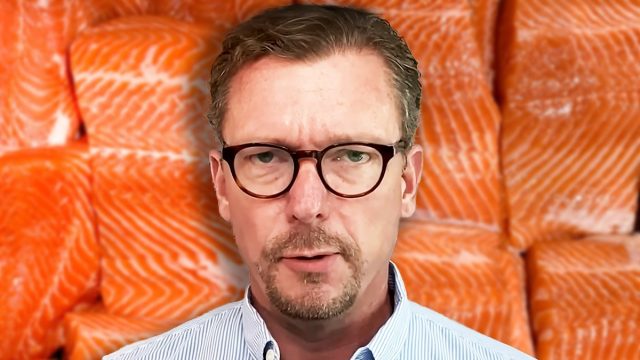
Think you're getting enough protein? Many of us don't, and the signs aren't always obvious. In this revealing countdown, we'll explore ten increasingly important signs of protein deficiency, starting with subtle hints and building up to serious warning signals that demand attention.
Dr. Ken Berry, a family physician with over 20 years of clinical experience, brings crucial insights about protein deficiency that could transform your health. As he explains, "There are sources of information out there that will tell you that eating too much protein is bad for you… In fact, nothing could be further from the truth." Join us as we count down these essential warning signs that could help you identify and correct this common deficiency.
Sleep Disruptions – The Surprising Sign

The countdown begins with an unexpected connection. Dr. Berry shares his own surprise at this finding: "When I was doing the research for this video, I did not know that a protein deficiency can lead to insomnia, but it's actually quite well known in the sleep literature," he says in his video post.
Mood Changes

Your protein intake might be affecting your emotional well-being more than you realize. As Dr. Berry notes, "If you're always down in the dumps, you always have a negative mood, this is actually a sign of protein deficiency."
Unusual Cravings and Hunger

Those persistent cravings aren't random. Dr. Berry explains, "Your body's looking for a very short list of nutrients in your diet. It's looking for amino acids that come from protein… If you're not getting enough protein in your diet, then your body is going to increase your hunger and it's going to make you have these weird cravings trying to get the particular amino acid or protein molecule that it's looking for."
Brittle Hair, Nails, and Skin Issues

Physical appearance often reflects internal nutrition. Dr. Berry warns, "If your skin is dry and flaky and very thin, if your nails break very easily or they flake up very easily, if your hair's brittle and breaks, if you're having hair loss for no apparent reason, these are all signs of protein deficiency."
Slow-Healing Wounds
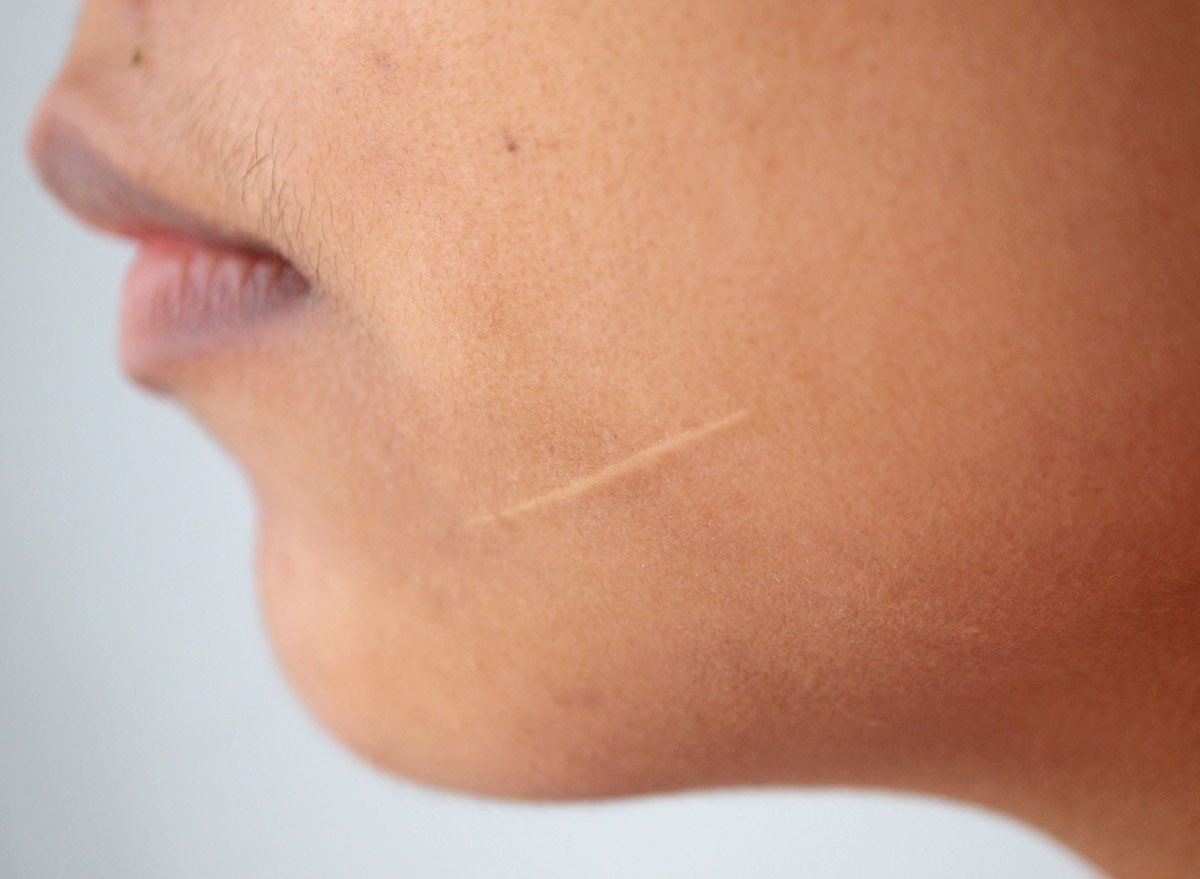
Notice how long it takes for cuts and scrapes to heal? Dr. Berry points out, "If you've been eating low protein for years or decades, then you've gotten used to how long it takes for your wounds to heal, so you may not recognize your wound healing as slow, so maybe ask some friends and relatives how long it takes for a scrape or a cut or an abrasion to heal."
Frequent Infections

Your immune system needs protein to function properly. Dr. Berry explains, "If you have frequent upper respiratory infections or frequent bladder infections or frequent skin infections… Your immune system has to have a lot of protein in order to fight off infections, whether we're talking about bacterial infections or viral infections."
RELATED: 12-3-30 Walking Method: 20 Proven Tips to Lose Weight Faster
Stunted Growth in Children

For children, protein deficiency can have lasting consequences. "Stunning growth is almost always due, at least in part to a protein deficiency," Dr. Berry emphasizes. "The child just not getting enough protein… if you want your child to grow up to be tall and strong and beautiful and intelligent, they've got to get enough protein in their diet."
Muscle Loss

Muscle health is a crucial indicator. Dr. Berry states, "A very common sign of protein deficiency is muscle loss or the inability to gain muscle. This is very common in the elderly. As they don't eat enough protein, they lose their muscle mass. In some athletes, if they're not eating enough protein, they work out really hard and they don't gain muscle at all."
Decreased Bone Strength
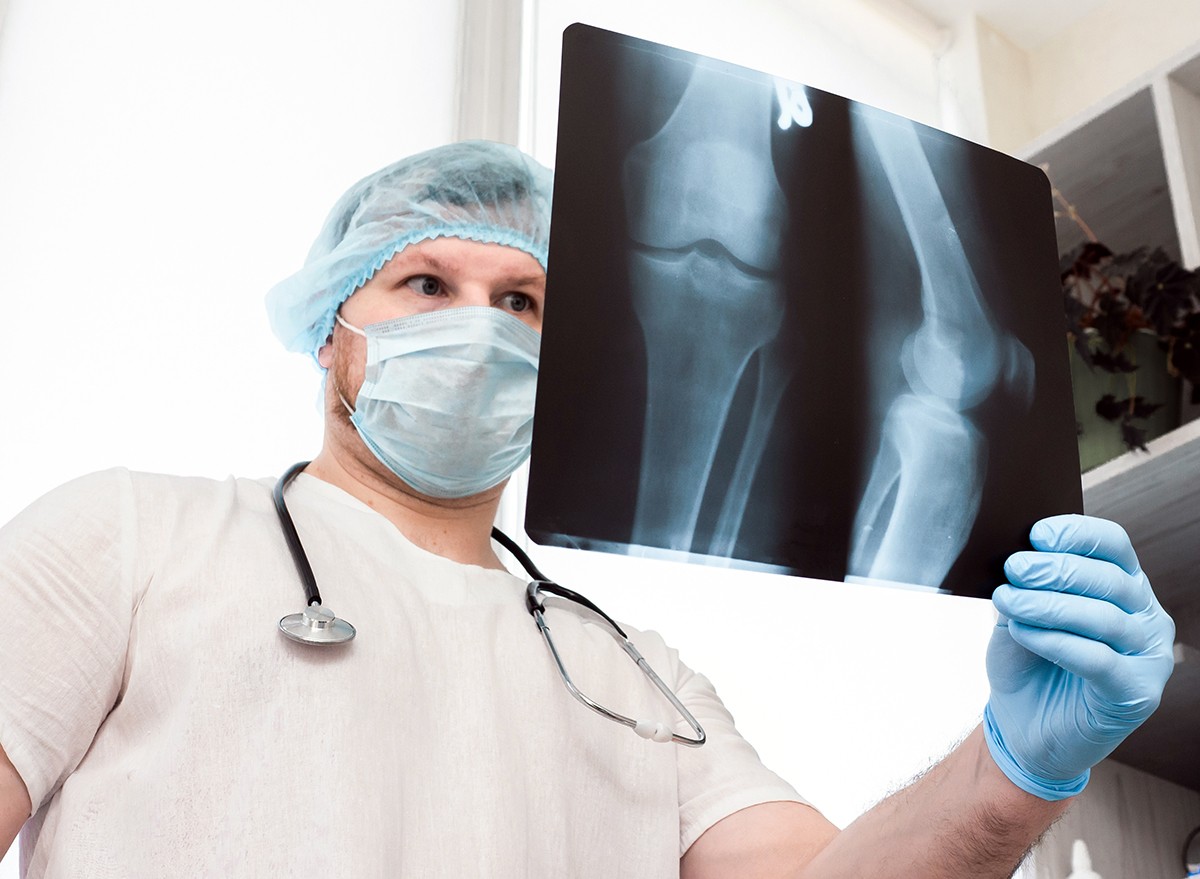
This sign challenges common misconceptions. Dr. Berry explains, "Most people think bones are made of calcium. They're actually made of protein with a calcium atom stuck into the matrix of the protein. Your bones are all protein, and if you're not eating enough protein, your body will not be able to keep your bones strong."
RELATED: 20 Possible Ozempic Side Effects
Severe Edema
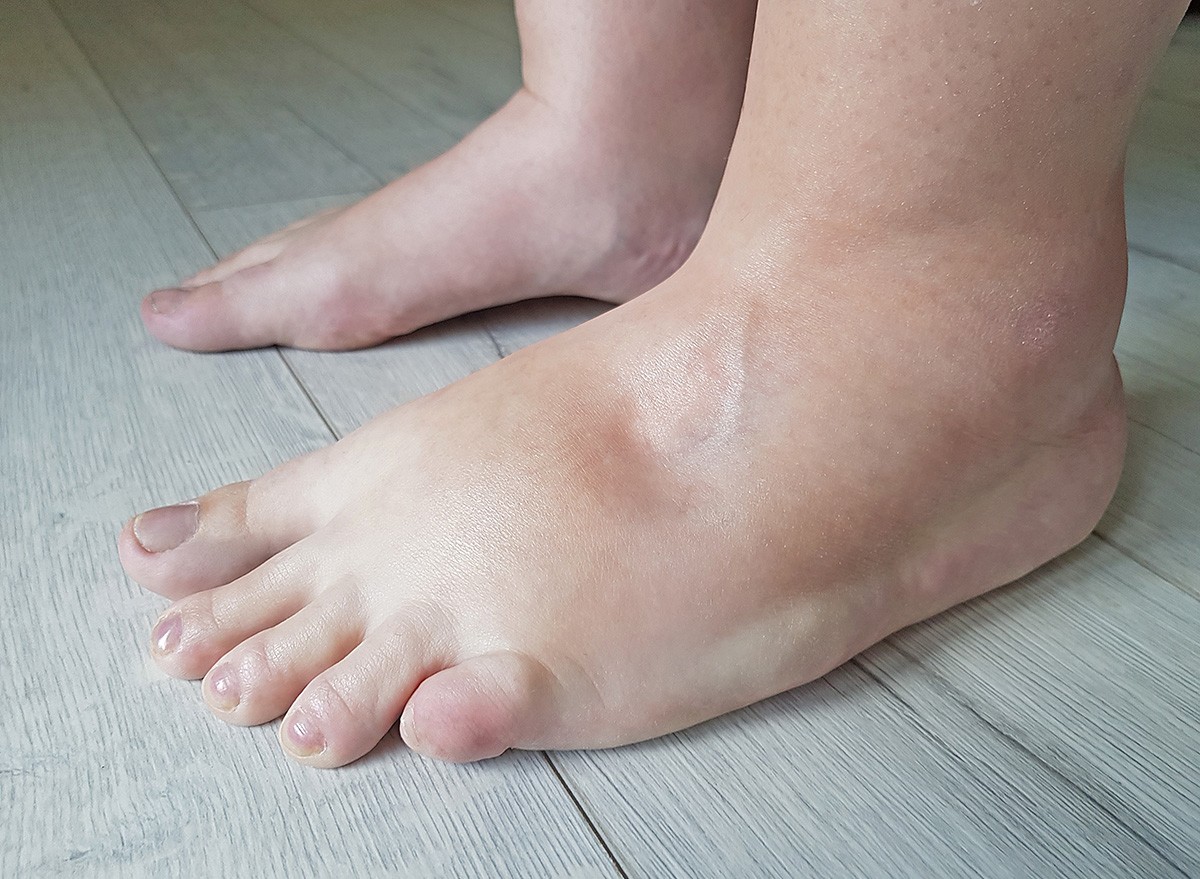
In advanced cases, protein deficiency can lead to visible swelling. Dr. Berry warns, "If you have a severe terrible protein deficiency, you can actually develop edema or swelling in your ankles and feet. This is kind of an end stage sign when you've been protein deficient for so long that your body's about to give up."
Expert Recommendations: Getting Enough Protein
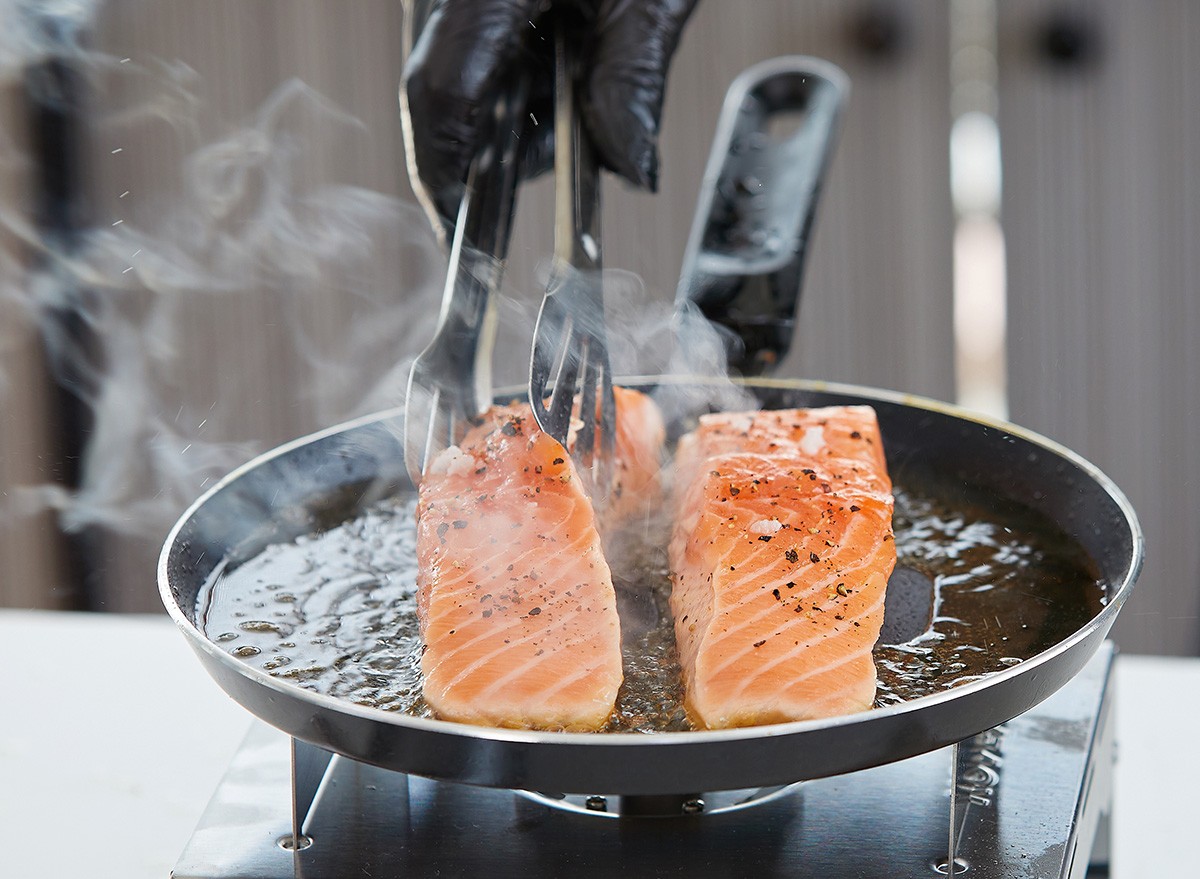
Dr. Berry recommends focusing on whole food sources: "The best sources for protein that I recommend are meat, fish, eggs, and cheese." He specifically notes, "Never ever do you need a protein shake or a protein bar or a protein powder. Those are usually wind up being carbohydrate shakes in bars and powders."
For optimal intake, he advises "two grams of protein per kilogram of body weight, or if you're in the United States, then one gram of protein per pound of body weight." He emphasizes that this isn't excessive: "Protein's good for your kidneys, protein's good for your bones. Protein is good for every other part of you."
Special attention should be paid to at-risk groups: elderly individuals who might default to simple carbohydrates, women (especially during pregnancy and breastfeeding), and growing children who might prefer snacks over protein-rich foods. And if you enjoyed this article, don't miss these 8 High-Protein Foods with Nearly Zero Calories That Melt Fat
.




